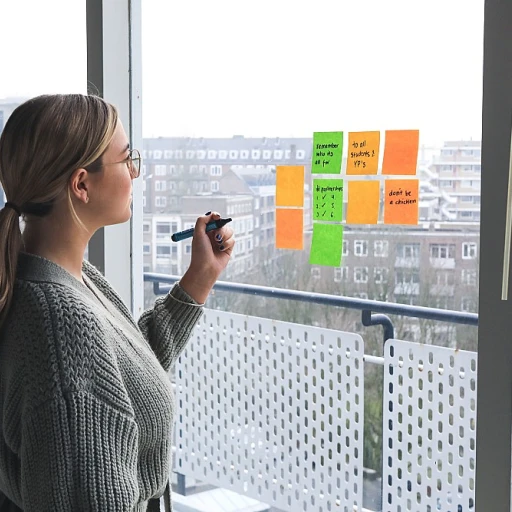
Understanding the Need for Transformation
Identifying the Pain Points in the Current System
In the realm of accounts payable, businesses are witnessing the limitations posed by traditional manual processes. As organizations grow, the sheer volume of invoices and payments can lead to delays, errors, and inefficiencies. Not only do these challenges strain vendor relationships, but they also impact overall business operations, including cash flow and decision making.Manual Data Entry: A Barrier to Efficiency
A predominant issue resides in the manual data entry for invoice processing. With the prevalence of paper-based invoicing, enterprises face prolonged processing times that affect payment cycles and delay workflows. This time-consuming task not only increases the risk of errors but also hampers real-time visibility into financial operations.The Imperative of Real-Time Insights
In today's fast-paced business environment, the demand for real-time data and insights is more crucial than ever. Businesses require quick access to financial information to make informed decisions. Without the capabilities to process this data promptly, leaders find themselves grappling with outdated information, affecting strategic financial management.Embracing Digital Transformation
The shift towards a digital transformation is not merely a trend but a necessity for modern enterprises aiming to streamline their accounts payable processes. As automation solutions become more sophisticated, companies can leverage automation software to enhance workflows and improve accuracy. For more insights on revolutionizing traditional systems with innovative solutions, here is a useful resource.The Path Forward
To address these pain points, embracing cloud-based automation can effectively transform accounts payable processes. By doing so, businesses stand to gain significant cost savings, enhance time visibility, and improve management of vendor relationships. Subsequent sections will delve into how automation and technology are pivotal in driving this transformation journey.The Role of Technology in Accounts Payable
Embracing Digital Solutions for Efficiency
In recent years, the accounts payable processes have experienced substantial evolution, moving away from manual methods towards more automation-driven systems. The integration of automation software and cloud-based platforms plays a critical role in reshaping how organizations manage invoice processing and vendor relationships. These digital transformation initiatives not only improve real-time visibility into payment statuses but also significantly enhance cash flow management.
Technology in financial management facilitates the shift from labor-intensive data entry to streamlined data processing. By leveraging automation solutions, businesses can efficiently handle large volumes of invoices, thereby minimizing processing time and reducing errors. This transition enables organizations to focus on more strategic aspects of financial management, such as decision making and cost savings.
Automating Workflows for Better Results
The adoption of payable automation systems results in profound improvements in the payable process. By automating tasks like invoice matching and approval, companies can eliminate bottlenecks in their workflows, thereby increasing the speed and accuracy of their payments. This payable digital approach not only results in operational efficiencies but also enhances an organization’s reputation by strengthening vendor relationships and fostering trust.
Effective payable transformation processes deliver measurable improvements across several dimensions: mitigating risks associated with fraud, promoting transparency, and enhancing the company’s financial health. The shift toward a digital paradigm reduces dependency on paper-based systems and sets the stage for more sustainable business practices.
By integrating advanced technological tools, businesses can achieve a more robust and efficient accounts payable structure, one that is poised to handle current demands and adapt to future trends in payable systems.
Best Practices for a Successful Transformation
Strategies for Seamless Integration
Revamping the accounts payable process is a complex journey, and success lies in adopting efficient strategies that align with both financial goals and business needs. Implementing best practices can pave the way for streamlined workflows and a significant reduction in manual interventions. Here are some crucial best practices:- Adopt Payable Automation: Embracing automation solutions can revolutionize the way invoices are processed. Automation software not only speeds up the invoice processing time but also minimizes errors in data entry. By reducing manual processes, businesses can improve cash flow and enhance real-time visibility into their financial standing.
- Implement Cloud-Based Systems: Transitioning to cloud-based systems for accounts payable management provides scalability and flexibility. These systems allow for better tracking of invoices and payments, enabling efficient payable process management and leading to a smoother payable transformation journey.
- Leverage Data for Decision Making: Data analytics play a pivotal role in transforming accounts payable functions. Leveraging insights from data can inform better decision-making processes and facilitate deeper understanding of vendor relationships and cash flows. This analytical approach can ensure that payable processes are both cost-effective and efficient.
- Enhance Vendor Relationships: Good vendor management is vital for a successful accounts payable transformation. Strengthening relationships with vendors through timely payments and clear communication can lead to better collaborations and optimized business operations.
- Focus on Continuous Improvement: Payable transformation is not a one-time activity but an ongoing process. Businesses should continuously evaluate their workflows and processes to adapt to the ever-evolving digital world. This commitment to improvement can lead to sustained success and innovation in financial management.
Challenges and Solutions in the Transformation Journey
Overcoming Obstacles in Accounts Payable Transformation
The journey of transforming accounts payable processes is often paved with challenges that can hinder progress. One of the most significant hurdles is the reliance on manual data entry systems, which not only consume time but also lead to errors. Transitioning to automation is crucial, yet many businesses face internal resistance due to fear of technology disrupting existing workflows.
Moreover, integrating automation solutions within existing financial systems can be daunting. Ensuring seamless operation without causing disruptions in invoice processing and payments requires careful planning and expertise. It's essential to align these systems with cloud-based platforms to facilitate real-time visible payable data, enhancing decision-making capabilities and improving cash flow management.
Vendor relationships, too, play a vital role. Businesses must ensure that vendors are aligned with the new payable processes, reducing friction that may arise due to differences in digital capability and adaptability. Effective management of these relationships ensures smoother invoice and payment procedures, while supporting cost savings for the organization.
Furthermore, data security concerns may arise during digital transformation. This is a critical aspect that businesses must address to protect against potential breaches, ensuring that data integrity is maintained. Employing robust automation software with advanced security protocols can mitigate these risks.
In conclusion, embarking on a transformation journey in accounts payable involves overcoming these and other challenges. By strategically addressing each obstacle with effective solutions, companies can achieve a seamless transition, leveraging automation to enhance efficiency and optimize business processes.
Case Studies: Success Stories in Accounts Payable Transformation
Empowering Accounts Payable: Transformation Success Stories
Transitioning accounts payable from a manual process to a digital, automated workflow is no small feat. Yet, many businesses have successfully navigated this journey, harnessing the power of automation to streamline their financial processes.
A prominent retail company undertook a digital transformation of their accounts payable process. They shifted from traditional paper invoices to a cloud-based invoice automation system. This move enabled real-time visibility into payment processing and significantly reduced the time spent on manual data entry. As a result, the company saw dramatic improvements in their cash flow management and experienced substantial cost savings.
Another noteworthy example is a global manufacturing business that integrated automation software into their accounts payable workflows. This deployment not only accelerated their invoice processing but also enhanced their vendor relationships by ensuring timely payments. The automated system allowed the company's financial team to focus more on strategic decision making and less on tedious, repetitive tasks.
Yet another success story comes from a financial institution that eradicated bottlenecks in their payable processes through automation solutions. By improving the efficiency of their payable process, they were able to handle a higher volume of invoices without increasing headcount. This provided them with a measurable return on investment and optimized their overall payable transformation.
Such cases exemplify how businesses can overcome the challenges often faced during the transformation journey. As technology continues to evolve, the spectrum of possibilities in accounts payable transformation expands, offering fresh opportunities for those ready to embrace change.
Future Trends in Accounts Payable
The Evolution of Accounts Payable Practices
As businesses continue to evolve, the landscape of accounts payable is undergoing significant changes, thanks to the integration of automation solutions and digital transformation. With increasing demands for accuracy and efficiency, organizations are seeking innovative ways to handle invoice processing and streamline their financial workflows.
Integration of Advanced Automation Technologies
Automation software is becoming indispensable in the management of accounts payable processes. By leveraging cloud-based solutions and real-time data processing, companies are able to minimize manual efforts and reduce errors. This integration not only leads to substantial cost savings, but also enhances timely processing of vendor payments, positively impacting vendor relationships.
Data-Driven Decision Making
The shift towards data-centric processes in accounts payable allows businesses to utilize insights derived from payable automation. This enhanced access to timely data supports better cash flow management and strategic decision-making, aligning financial goals with business objectives.
Improved Workflow Management
There's a growing trend in adopting automation solutions to refine payable processes and optimize workflow management. As businesses migrate from manual data entry to digital platforms, they are witnessing enhanced time visibility across various stages of the payable process, leading to more agile operations.
Anticipating Future Innovations
The future of accounts payable will likely see further advancements in technologies such as AI and machine learning. These innovations are anticipated to bring forth new approaches to invoice automation, allowing for more sophisticated analysis and even more streamlined payable transformation. As businesses continue on this transformation journey, staying adaptable and open to technological enhancements will remain crucial.













